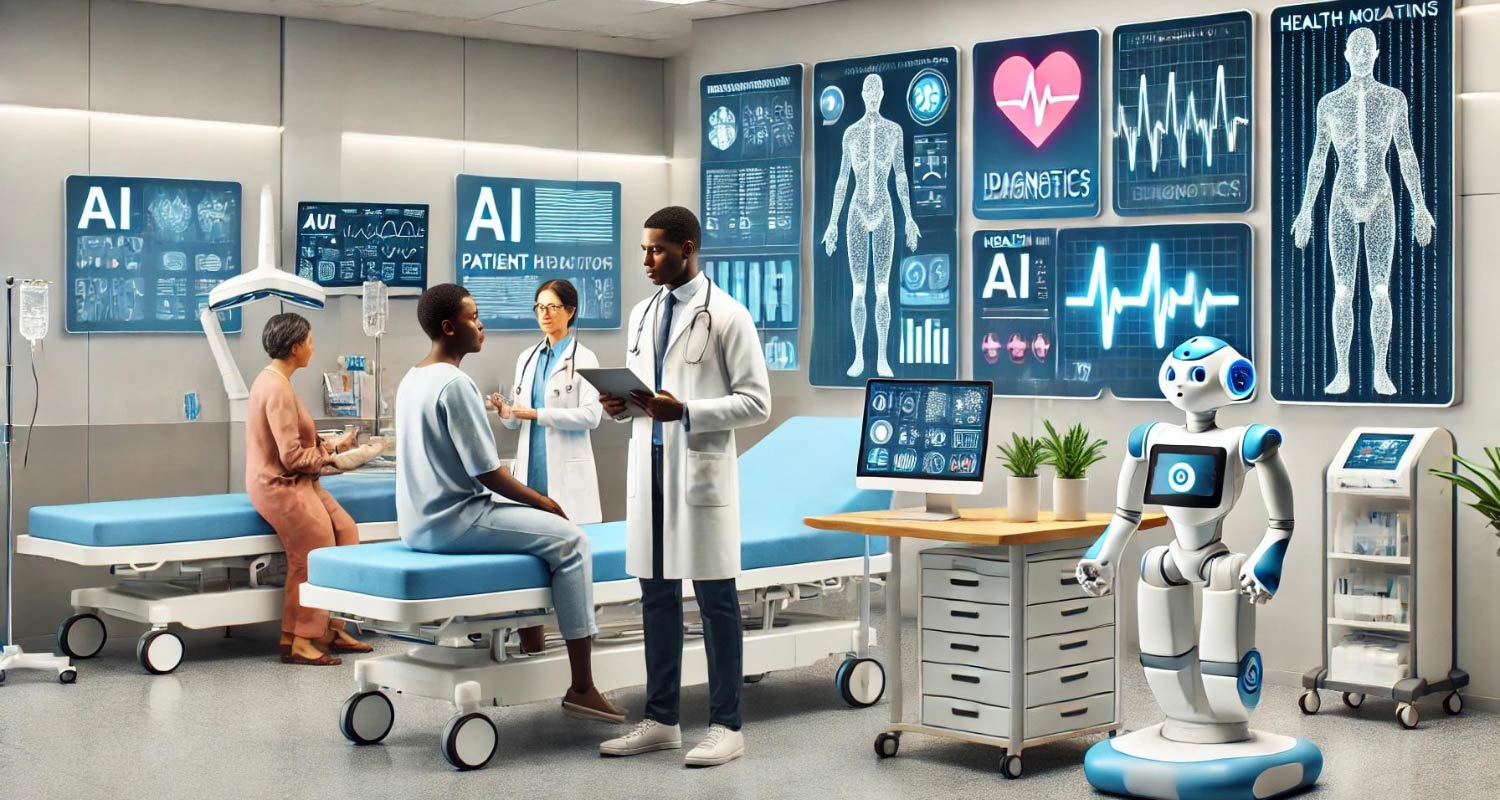 In healthcare, the promise of artificial intelligence (AI) extends beyond technological advancement: it can potentially change how we approach patient care and clinical decision making. But this reaches beyond a technology discussion. It hits right to the heart of how, when used effectively, AI can positively impact healthcare professionals.
In healthcare, the promise of artificial intelligence (AI) extends beyond technological advancement: it can potentially change how we approach patient care and clinical decision making. But this reaches beyond a technology discussion. It hits right to the heart of how, when used effectively, AI can positively impact healthcare professionals.
There is no doubt that healthcare professionals are the backbone of our medical system, yet they face unprecedented levels of burnout and frustration. This global phenomenon is characterised by high rates of professionals leaving their roles, with over 50% of US physicians not recommending their occupation to their children. In South Africa, doctors leave due to poor working conditions, inadequate support and resources, lack of regulation, professional frustration, no professional fulfilment, and conflict within professional bodies.
It is an alarming trend that points to deeper systemic issues that must be addressed to ensure the sustainability of healthcare delivery. And one where AI may offer a compelling solution to alleviate some of these pressures. By automating routine tasks and providing advanced decision support, AI can reduce the cognitive load on clinicians, allowing them to focus on patient care and complex medical decisions. In our local public healthcare system, where medical resources are limited, an enhancement in job satisfaction and patient outcomes due to the effective use of AI will create a win-win scenario for healthcare providers and patients.
The role of regulations and interoperability
Effective healthcare delivery relies heavily on the seamless flow of information (data) across and between various stakeholders. However, this requires regulatory frameworks that encourage interoperability and standards. It is also why national networks and local health information exchanges (HIEs) are pivotal in facilitating interoperability to ensure the correct data is accessible and actionable when and where needed.
AI thrives on data, and the ability to integrate and analyse data from disparate sources is fundamental to its success. High-quality, trustworthy data should enable AI to provide valuable insights to drive better clinical and operational decisions. Proper infrastructure and data management are crucial for developing and maintaining AI applications with appropriate oversight. This presents challenges and opportunities for the South African healthcare industry, which often needs a systemic overhaul.
Generative AI: transforming patient and clinician experience
Generative AI is a transformative form of AI that has the potential to revolutionise the healthcare experience for patients and clinicians. This is because gen AI can help derive value from unstructured documentation that describes the patient’s conditions, treatment, relevant clinical research and more. The possibilities include virtual health assistants providing round-the-clock support to AI-powered apps offering tailored health recommendations.
For clinicians, AI can enhance the usability of electronic medical records (EMRs), making them more intuitive and less cumbersome. Pilot studies demonstrate AI’s potential to streamline documentation processes and provide intelligent prompts when providing care. This will give clinicians more time to engage meaningfully with their patients.

Harnessing data for better clinical management
The wealth of data generated within the healthcare system is a gold mine waiting to be tapped. And AI is the virtual “tap”, as it can analyse large datasets to help track and manage chronic diseases like diabetes and HIV or spot the onset of epidemics and pandemics. In some countries, number-crunching AI-powered dashboards already provide real-time patient population updates, enabling proactive interventions and better resource allocation.
One of AI’s most promising emerging applications in healthcare is clinical decision-augmented support. AI has proven its ability to interpret complex medical images and lab results to help clinicians make more informed, faster decisions. AI algorithms are now being tested to help detect early signs of sepsis, facilitating timely interventions that will save lives. Predictive analytics will enhance centralised monitoring, improving alert visibility and prompt resolution for community care.
Personalising care and enhancing operational efficiency
AI can empower patients by providing them with personalised health information and relevant treatment recommendations. Using historical and relevant data, chatbot conversations and AI-driven apps can offer timely advice and support, enhancing patient engagement and helping them take a more active role in managing their health, leading to better health outcomes and a more patient-centred approach.
Another area of concern to healthcare organisations is operational efficiency, where, for example, AI might help streamline scheduling and insurance claims before authorisation and billing. Patient flow analysis – the tracking of a patient’s physical or logical position in the care process – might identify inefficiencies and suggest workflow improvements that help optimise operations for more effective care and better patient experiences at a lower cost.
Driving research and innovation
There is a bigger picture: AI is a powerful catalyst for research and innovation in healthcare. By analysing high volumes of medical data, AI can uncover new insights and trends that drive the development of new treatments and therapies. AI can also model and simulate clinical trials to accelerate research, bring new solutions to market faster, and help continuously improve the science of medicine.
As healthcare organisations explore the AI frontier, they must establish governance systems for data collection and leverage AI to achieve meaningful, sustainable care improvements.
Watch a recent TechCentral interview with InterSystems’ Henry Adams:
About InterSystems
InterSystems, a creative data technology provider, delivers a unified foundation for next-generation applications for customers in more than 80 countries. Our approach revolves around a cloud-first data platform that integrates high-performance database management, smart data services and analytics capabilities. For 46 years, InterSystems has delivered the healthcare data integration engine for the world’s most proven electronic medical record used by health systems and governments. Our mission is to ensure that people have reliable, real-time access to data for drawing insights and perceiving data in imaginative ways. Based in Cambridge, Massachussets, InterSystems has a global presence, with 39 offices in 28 countries worldwide. Contact InterSystems at https://www.intersystems.com/za/ or follow the company on LinkedIn.
- The author, Henry Adams, is country manager at InterSystems South Africa
- Read more articles by InterSystems on TechCentral
- This promoted content was paid for by the party concerned




